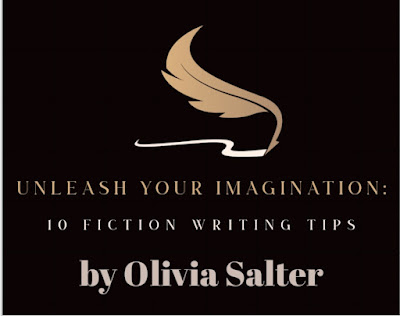Unleash Your Imagination: 10 Fiction Writing Tips
by Olivia Salter
Crafting captivating works of fiction requires a unique blend of creativity, skill, and dedication. Whether you're an aspiring writer or a seasoned author, these ten fiction writing tips will help you enhance your storytelling abilities, deepen your characters, and create vivid narrative worlds. So let's dive into the realm of imagination and explore the secrets behind compelling fiction writing.
1. Start with a solid foundation:
Every captivating story is built on a solid foundation. Begin by outlining your plot, defining your characters, and establishing the setting. A well-structured framework will guide your narrative and provide a roadmap to ensure your story unfolds seamlessly.
2. Develop engaging characters:
Characters are the heart and soul of your story. Build three-dimensional characters with unique personalities, desires, and flaws. Give them deep aspirations and inner conflicts that readers can connect with. Remember, it's the characters that will drive the plot forward and keep readers invested.
3. Create authentic dialogue:
Dialogue breathes life into your characters and advances the narrative. Craft conversations that are authentic, natural, and purposeful. Each character should have a distinct voice, using dialogue to reveal their personalities, motivations, and emotions.
4. Show, Don't Tell:
Instead of simply telling your readers what's happening, show them through vivid descriptions, sensory details, and evocative language. Use imagery and metaphor to engage the reader's senses and place them right at the heart of your story.
5. Balance Action and Reflection:
Maintain a healthy balance between action and reflection. Engage readers by alternating between scenes of high tension and moments of introspection. This will create a dynamic rhythm, keeping readers hooked from one page to the next.
6. Master the Art of Pacing:
Pacing is crucial to maintaining your reader's interest. Vary the pace to build tension during intense moments and slow it down during quieter scenes. Experiment with sentence length, paragraph structure, and chapter breaks to effectively control the speed at which your story unfolds.
7. Embrace conflict and tension:
Conflict is the driving force behind any compelling story. Introduce various obstacles—internal and external conflicts and moral dilemmas—that challenge your characters. Conflict creates tension and keeps readers eagerly turning the pages.
8. Engage the reader's emotions:
Create an emotional connection between your readers and the characters by eliciting a range of emotions. Make them laugh, cry, and experience excitement or fear. Emotionally invested readers will form a deep bond with your story, ensuring its lasting impact.
9. Pay attention to detail:
Effective world-building relies on paying attention to details. Whether it's the historical background of your settings, the mechanics of a fictional technology, or the cultural nuances of your characters, flesh out the details to make your story feel more authentic and immersive.
10. Revise and edit:
The writing process doesn't end with the first draft. Revise, edit, and refine your manuscript. Look out for inconsistencies, pacing issues, and plot holes. Trim unnecessary details and polish your prose to create a tight and polished final product.
Conclusion:
Writing fiction is an art form that allows you to transport readers to the captivating worlds of your creation. By implementing these ten fiction writing tips, you can enhance your storytelling skills, create engaging characters, and build immersive narratives that will leave a lasting impact on your readers. So unleash your imagination, trust your instincts, and embark on a wondrous writing journey. Happy writing!
Article Sponsor
Have you heard about LifeWave X39?
X39 is a true breakthrough in regenerative science. Using light, X39’s patented health technology elevates the copper peptide GHK-Cu-cu, which is known to assistin health and wellness.
Writers learn about a lucrative business opportunity.








